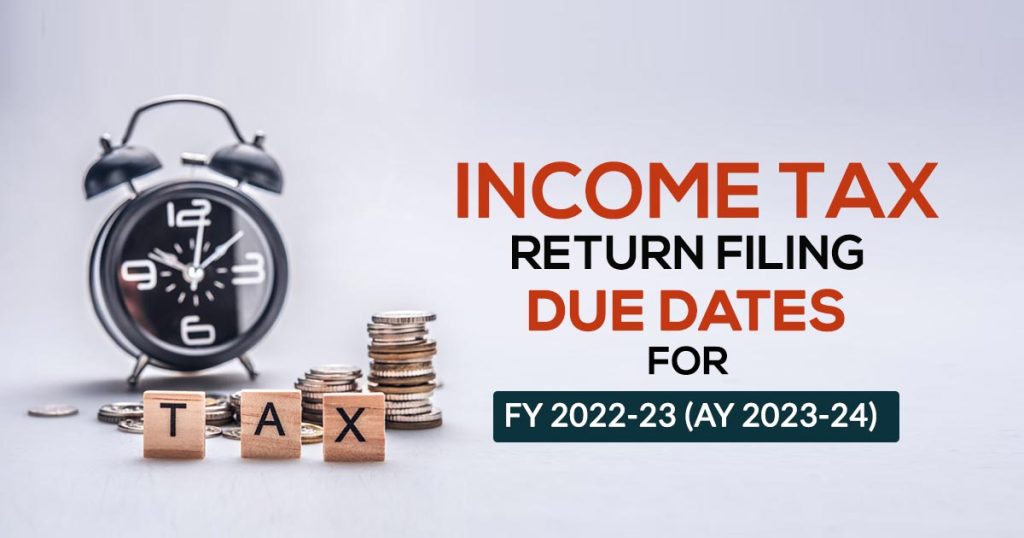Meeting tax deadlines is crucial for individuals and businesses to ensure timely compliance with the tax regulations. The Assessment Year (AY) 2023-24 brings with it specific due dates for various tax-related activities. In this blog, we will provide a comprehensive guide to the tax due dates for AY 2023-24, helping you stay organized and avoid penalties.

1. Advance Tax Due Dates:
Advance tax is applicable when your tax liability exceeds Rs. 10,000 for the financial year. The due dates for advance tax payments for AY 2023-24 are as follows:
a) 15th June 2023: 15% of the advance tax liability should be paid by this date.
b) 15th September 2023: 45% of the advance tax liability should be paid by this date.
c) 15th December 2023: 75% of the advance tax liability should be paid by this date.
d) 15th March 2024: 100% of the advance tax liability should be paid by this date.
2. Tax Return Filing Due Dates:
The due dates for filing income tax returns (ITR) for different categories of taxpayers are as follows:
a) Individuals and HUFs not subject to tax audit: 31st July 2023
b) Businesses and professionals requiring tax audit: 30th September 2023
c) Companies: 30th November 2023
3. Tax Audit Due Date:
Tax audit is applicable for businesses and professionals whose annual turnover or gross receipts exceed the specified threshold. The due date for tax audit for AY 2023-24 is 30th September 2023.
4. TDS/TCS Return Filing Due Dates:
Tax Deducted at Source (TDS) and Tax Collected at Source (TCS) returns must be filed by the following due dates:
a) Form 24Q, 26Q, 27Q, and 27EQ (for Q1 of FY 2023-24): 31st July 2023
b) Form 24Q, 26Q, 27Q, and 27EQ (for Q2 of FY 2023-24): 31st October 2023
c) Form 24Q, 26Q, 27Q, and 27EQ (for Q3 of FY 2023-24): 31st January 2024
d) Form 24Q, 26Q, 27Q, and 27EQ (for Q4 of FY 2023-24): 31st May 2024
5. GST Return Filing Due Dates:
For businesses registered under the Goods and Services Tax (GST) regime, the due dates for GST return filings for AY 2023-24 are as follows:
a) GSTR-3B (monthly return): 20th of the following month
b) GSTR-1 (monthly or quarterly return): 11th of the following month (monthly) or 31st of the following month (quarterly)
Conclusion:
Adhering to tax due dates is crucial to avoid penalties and ensure compliance with the tax regulations. The Assessment Year 2023-24 comes with specific due dates for advance tax payments, income tax return filings, tax audits, TDS/TCS returns, and GST return filings.
It is essential to mark these dates on your calendar, maintain proper records, and initiate the necessary actions well in advance. Seeking professional assistance or utilizing reliable tax software can help streamline the tax compliance process and minimize the chances of missing any important

